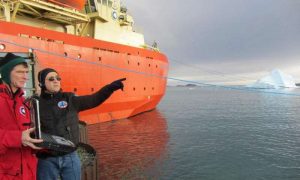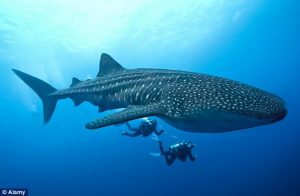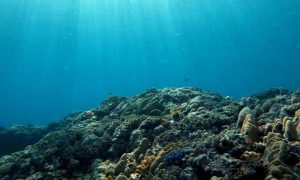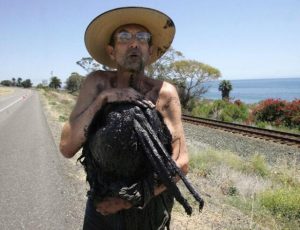
Week in Review: State of Europe’s Seas Goes from Bad to Worse, Radiant Reefs Found Deep in the Red Sea, and More!
1. State of Europe’s Seas Goes from Bad to Worse The European Environment Agency published a the first State
The Ocean Week in Review is published as a newsletter and is posted on the Ocean Week in Review blog every Friday. We optimize post time so that it can be read during the morning or afternoon commute. The Ocean Week in Review post is segmented, each portion containing an individual news story. Each summary is about four sentences long, contains an illustrating photograph, and a hyperlink where interested readers can dive in to discover more details. The Ocean Week in Review is then posted on all our social media platforms (Facebook, Instagram, Twitter, Linkedin, Snapchat) We also promote this body of work by sharing it with our strategic partners so they can disseminate it to their networks.
The Ocean Week in Review is an essential weekly read which makes it possible for even the busiest person to stay abreast of all the breaking ocean news.

Sign up to receive updates from our “Ocean Week in Review” blog every Friday!
By investing a few minutes each week, you can stay abreast of current scientific breakthroughs, challenges, and advocacy efforts and incorporate this information into your understanding of the ocean.
Our wired world has left many people feeling over-scheduled, leaving little time to keep up with critical issues, including the state of the oceans. Lack of time to seek out important ocean information can result in lack of knowledge, indifference, and inaction. A poorly informed population will not push back against bad policy and dangerous decisions by local, national, and international leaders.
Every week the Sea Save Foundation team researches and vets the critical stories from the last seven days. We use only reliable news or primary sources. We weave the critical facts into a few tight sentences and present this “Ocean Week in Review” to our audience via our blog and social media platforms. By investing a few minutes each week, readers can stay abreast of current scientific breakthroughs, challenges, and advocacy efforts and incorporate this information into their understanding of the ocean. People want to do the right thing and want to protect oceans; we arm them with the information they need to best further these efforts. An informed public will choose to support sound policy that promises secure ocean futures.
Knowledge Translation – Often scientists write in a language understandable only by their colleagues. We break down stories published in peer-reviewed journals and reputable publications in a way that is understandable and interesting to the lay reader. We write entries using language that captivates and engages our readers. Information can contribute to knowledge and knowledge can result in action to protect our oceans.
Every week on Sunday, we scour the internet and multiple resources to pull a wide range of stories together. These stories include new discoveries, new policy updates both domestic and international, reported updates, and more.
While we shy away from opinion stories, we believe readers should be aware of publications that originate from a variety of sources. Sometimes, it is as important to learn what opposing viewpoints are writing as it is to learn about updates.
We collect stories from the internet and various resources, including our readers. These hyperlinks are placed on a Google Doc accessible to our entire team. The volunteer summary writers then create a short synopsis of each story. Once this is complete, our web designer and newsletter creator places the body of work on both a newsletter and a blog page. The newsletter is then reviewed, sent on Fridays, and the blog is posted on social media platforms. The entire process begins again two days later.
At times, we will reference our own original content as a story, which will be clearly marked. Additionally, sometimes we cannot help but add our editorial comments. Instead of integrating this into the summary, we will simply add an editorial comment line underneath the summary, clearly showing this is merely our opinion and is not integral to the story itself.

1. State of Europe’s Seas Goes from Bad to Worse The European Environment Agency published a the first State

1. Countdown to Shark Week! 15 Days, 13 Hours, 45 Minutes, and who knows how many seconds… As you can

1. Plant Growth and Climate Change This week, a research team from the University of Hawai’i at Manoa and University

1. Ocean Species Set for Reshuffle Scientists have predicted that by the end of the century the oceans could
1. Ecuador Seizes 200,000 Shark Fins This week, Ecuador found and seized a shipment of 200,000 shark fins. The

1. Heartbreaking Santa Barbara Oil Spill You very well may be having a difficult time with the picture to the
Sea Save Foundation is a 501 (c) 3 nonprofit organization EIN: 20-0403083. We received the GuideStar Platinum seal of approval in GuideStar’s Exchange program, meaning we have obtained their highest rating for transparency and legitimacy as an organization.



